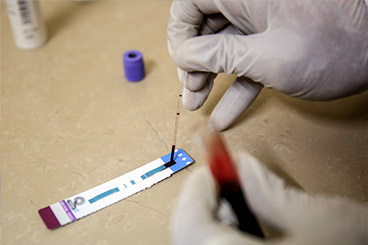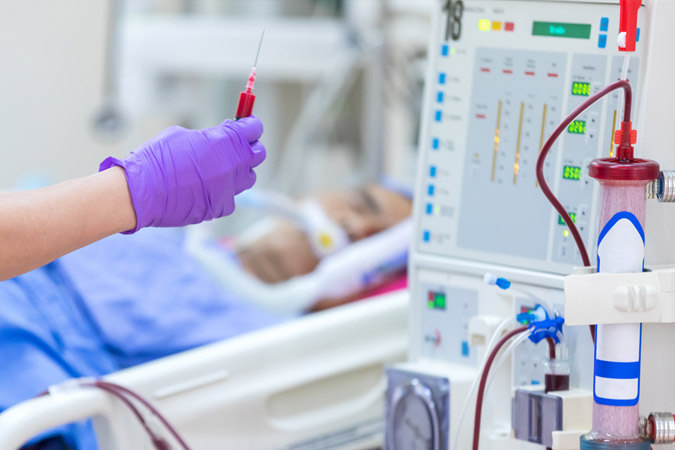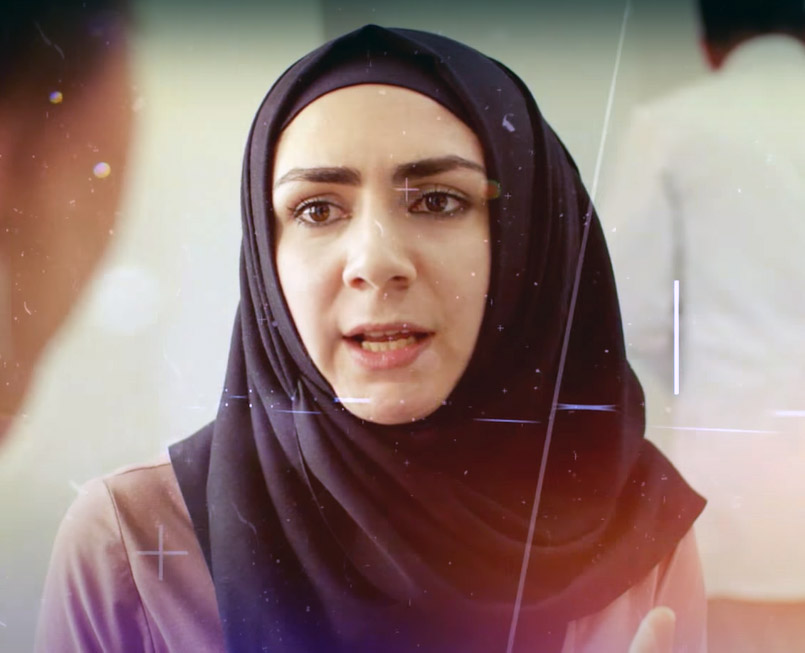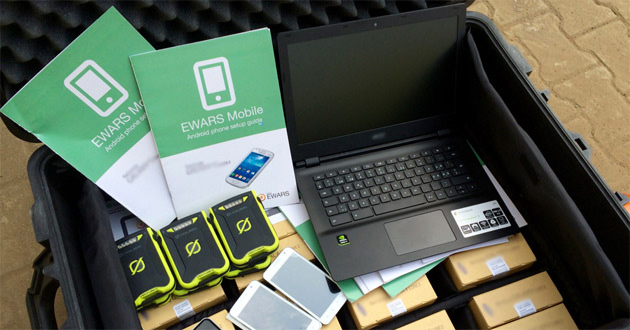HIV
In Syria in 2019, 58 patients were diagnosed with HIV, suggesting the notification rate (1 per 100 000 people) had remained unchanged compared with previous years. Damascus and Aleppo, Syria’s two largest cities, reported 20 and 10 patients each. WHO supported seven HIV workshops attended by 165 health workers in Damascus. Training encompassed the national protocol for managing patients with HIV, preventing the mother-to-child transmission of HIV, and other topics. In July, high-risk groups in Al-Hol camp were screened for HIV and invited to awareness and counselling sessions. No HIV cases were detected.

Haemodialysis services
Haemodialysis centres throughout Syria suffer from a lack of central management, poor IPC practices and limited services for patients with hepatitis B and C virus (HBV and HCV) and HIV. Securing dialysis kits and maintaining machines and water treatment units are constant challenges. Widespread shortages of haemodialysis facilities have meant that that thousands of Syrians have had no access to these life-saving services.
In 2019, WHO’s updated service map of haemodialysis facilities in northwest Syria showed that 21 centres (nine in Aleppo and 12 in Idleb5) were carrying out 6500 sessions for 655 patients each month. WHO’s survey of bloodborne viruses among these patients showed that 320 (48%) had HCV, 29 had HBV and one patient had HIV. WHO conducted an HBV vaccination campaign and procured IPC and haemodialysis kits for 500 patients for six months. WHO supported five haemodialysis centres in northeast Syria by maintaining equipment, delivering water supplies and purification systems, providing 10 haemodialysis machines and supporting 10 900 haemodialysis sessions.

Gender-based violence
Syria is one of eight countries in the Eastern Mediterranean region in which WHO works on confronting genderbased violence (GBV) in emergencies. Since 2018, it has institutionalized the prevention of and response to GBV across the health sector.
Health services can provide critical, time-sensitive interventions that prevent, mitigate or treat some of the health consequences of GBV and connect survivors
to services that improve their health and well-being. Mental health and psychosocial support (MHPSS) services are a critical entry point for helping GBV survivors. WHO has sought to gradually introduce GBV services into health and community facilities rather than presenting them as isolated projects. This has increased policy makers’ awareness, built capacity and integrated GBV concepts into existing curricula and health and community services.


The MoH endorsed its first ever training of trainers course in Aleppo, attended by health staff from eight governorates, and GBV was successfully integrated into MHPSS curricula, programmes and activities. WHO focused on exploring how GBV and protection against sexual exploitation and abuse could be introduced at community level across the country. In Gender-based violence every governorate, doctors were trained on the Mental Health Gap Action Programme (mhGAP), while some governorates initiated training programmes on the clinical management of rape. Participants from the MoH and NGOs in eight governorates took part in a workshop on effective communication for GBV prevention and response at community level.
WHO developed information, education and communication materials on GBV and mental health for health providers and community centres, and raised awareness of GBV in family wellbeing centres across Syria. It also supported a month-long campaign in Lattakia on preventing suicide and raising awareness of GBV.
WHO has mapped all GBV and mental health interventions in areas under government control and will use this information to assess capacity and identify training needs in 2020. WHO will continue to strengthen capacity by training mental health specialists on GBV and integrating basic psychological treatments for GBV survivors into PHC and family wellbeing centres. Syria is one of two countries globally participating in a one-year pilot project to develop global guidance on mental health and GBV.
Disease early warning and response
WHO’s office in Damascus supports EWARS by covering the telecommunications and travel costs of EWARS staff as well as the cost of collecting lab specimens and transporting them to the reference laboratory in Damascus. In northwest Syria, WHO’s office in Gaziantep supports capacity building for surveillance officers. In 2019, this included a series of training courses on different topics.
WHO’s office in Damascus supports EWARS by covering the telecommunications and travel costs of EWARS staff as well as the cost of collecting lab specimens and transporting them to the reference laboratory in Damascus. In northwest Syria, WHO’s office in Gaziantep supports capacity building for surveillance officers. In 2019, this included a series of training courses on different topics.









